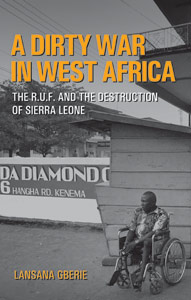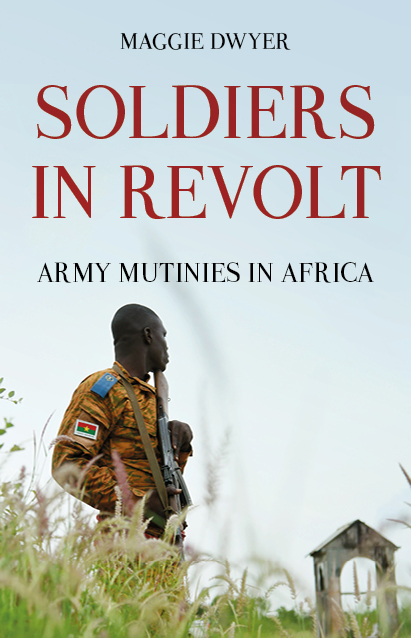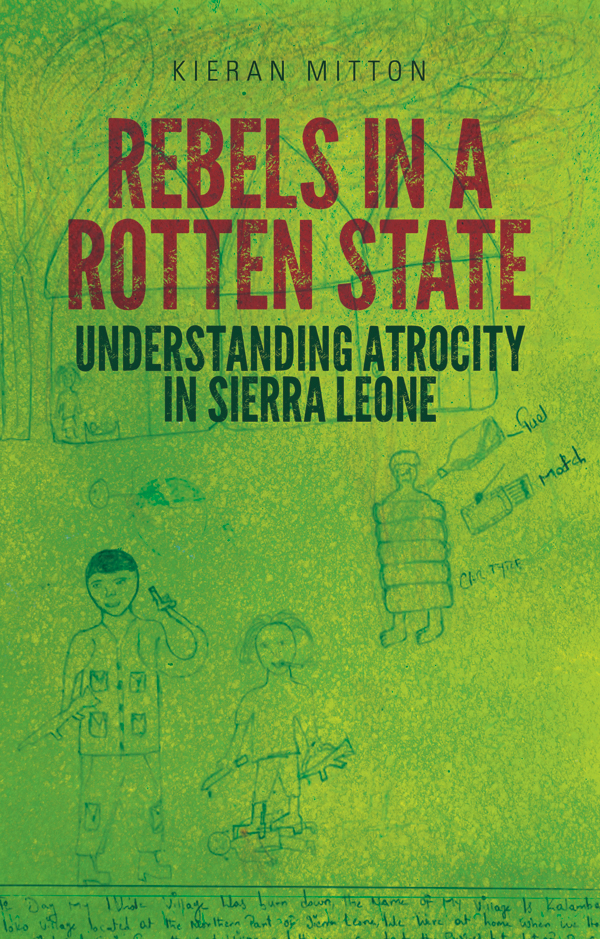Description
A Dirty War in West Africa charts, in gripping detail based on first-band experience, the decade long civil war that brought Sierra Leone to its knees from 1991-2001. The group spearheading the violence, the Revolutionary United Front (RUF), claimed to be freeing the country from corruption and the brutalities of its political class and their foreign allies, but their insurgency killed more than 75,000 people, displaced half the population and destroyed one third of the country’s already feeble infrastructure. The RUF also became notorious for appalling acts of brutality, including rape and the widespread use of mutilation: those deemed supporters of the government or any of its agencies had their limbs hacked off. The RUF is today a spent force, politically, although some claim it has retained its arms in the hope of one day relaunching a military campaign. But where did it spring from? Was it a movement driven by criminal acquisitiveness that adopted the rhetoric of politics? Was it another example of Sierra Leone’s tradition of subaltern uprisings by disaffected youths, often manipulated by wily political operators? Or was the RUF an inchoate uprising of the people?
Reviews
‘Provides important insider information concerning Sierra Leone’s recent war … offers insights into the inner workings of a failing state and the insurgency … fits well with Hurst’s reputation for publishing definitive accounts of out of the way places” that are more important than armchair strategists would credit … it will appeal to those interested in more general aspects of contemporary warfare … it also builds on Gberie’s established reputation as an insightful and courageous journalist. Though he soft-pedals his own positive role in Sierra Leone’s recent history, one should mention his contribution to the campaign against “blood diamonds”.’ — Professor Will Reno, Northwestern University
‘Gberie, a journalist and longtime observer of Sierra Leone’s politics, has written an even handed and perceptive account of the country’s tragic civil war during the 1990s. Much of his story focuses on the revel leader Foday Sankoh, a small-time political entrepreneur who emerged from radical student politics, went through military training in Muammar al-Qaddafi’s Libya, and went on to lead the Revolutionary United Front (RUF) in one of the most vicious and pointless wars of the twentieth century … Notwithstanding his evident lack of organizational abiliites, Sankoh held tenuous sway over the RUF thanks to a combination of personal charisma and a ruthlessness that led him to kill off potential rivals. Gberie’s analysis is consistently readable, and he does a fine job of disentangling the complexities of the civil war, the international peacekeeping efforts, and the reemergence of reasonably stable constitiutional rule under President Ahmad Tejan Kabbah in the early years of the twenty-first century.’ –– Foreign Affairs
Author(s)
Lansana Gberie is a research associate of the Wilfrid Laurier Centre for Miltary, Strategic and Disarmament Studies, and a consultant for Partnership Africa Canada, an Ottawa-based lobby group. He covered the Sierra Leonean civil war as a journalist for the Inter Press Service and newspapers from 1991-6, and was among the first to meet and interview Foday Sankoh, former leader of the RUF, Gberie is one of the authors of The Heart of the Matter: Sierra Leone, Diamonds and Human Security (Ottawa, 2000).


